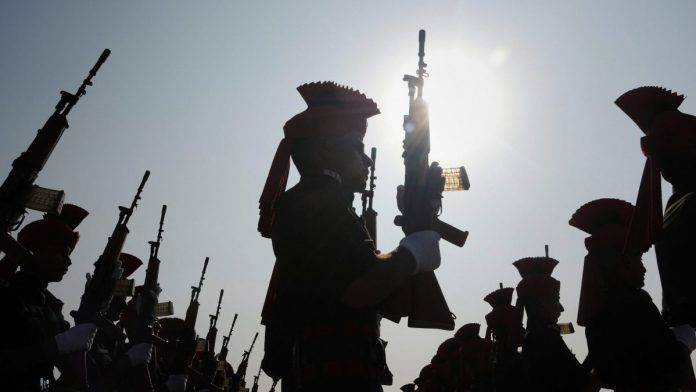
Analysts say Pakistan must contest its case diplomatically and refrain from reciprocating India's initiation of aggression.
Pakistan has decided to initiate diplomatic efforts to counter Indian aggression. On Tuesday, Indian Air Force (AIF) violated Pakistan’s airspace in Balakot, Khyber Pakhtunkhwa (KP) near the Line of Control (LoC).
Hours after the incident, Foreign Minister Shah Mehmood Qureshi termed India’s claim of targeting militants’ camps in Pakistan as ‘reckless’ and ‘fictitious’, and added that the Indian air strike has put regional stability at great risk. The FM announced that Pakistan would begin diplomatic efforts to respond to Indian aggression.
Although DG ISPR Major General Asif Ghafoor later told journalists that Pakistan has decided the time and place for response over intrusion and that India must ‘ready itself for surprise’, if initial response from the government is anything to go by, it is clear that Pakistan plans to show restraint in the face of Indian aggression.
Pakistan’s measured response to the attack is being welcomed by security analysts who think chest-thumping and war mongering is not the solution to regional tensions.
Analyst Ayesha Siddiqa is of the opinion that one can’t escalate beyond a certain point in a nuclear environment. “Indian Air Force entered into the Pakistani territory, bombed an area and went back. This was certainly an act of war, but that Pakistan Air Force did not retaliate might mean we understand the risks”, she said.
Siddiqa added that Pakistan had also used the option of ‘limited war’ in Kargil, and that both sides have learned the lesson that escalation cannot be expanded beyond a certain point. She however added that the nuclear threshold has been redefined by this attack.
In response to a question, Siddiqa said that the 2016 surgical strike by India was limited, which is why Pakistan had the advantage of plausible deniability. “This time the aggression is deeper, but India is probably exaggerating the facts about the attack because the Indian government has to prove its anti-Pakistan hatred ahead of the elections,” she said.
Siddiqa also said that if the Indian air strike in fact targeted the Jaish-e-Muhammad (JeM) camps in Balakot, the possibility of another JeM attack in India remains high. “That would certainly worsen the situation.”
Siddiqa further said that Pakistan should accept that we need to put our own house in order because the world is aware of the terror outfits’ presence in the country. “We need to initiate a visible demonstrable act that shows the house is being put in order. If Pakistan comes clean before the world over allegations of protecting terrorists, it would make our case strong and the international community would not buy India’s claims,” she added.
When asked if there is a will in Pakistan to do away with the policy of discriminating among terrorists based on their ‘good’ or ‘bad’ status, Siddiqa said so far there is no demonstration that the policy is over. “Pakistani officials must understand that the threats are higher than before. We must act against all terrorists regardless of their affiliations.”
She stressed on the need for resumption of dialogue between the two countries to deescalate the crises. “War is not an option”, she concluded.
Analyst Imtian Gul says government’s response to the Indian attack and its decision to deal with it in a diplomatic way should be welcomed. He added that Pakistan has been trying to eliminate the menace of terror and carry out across the board action against terrorists, so it is unfair to say that the government lacks the will. “Pakistan is certainly willing to undo the effects of terrorism, but it requires a holistic approach”, he maintained.
He added that several social and political complications are involved and there has to be a collective approach when it comes to dismantling the network of militants in Pakistan.
Gul added that Pakistan needs to form a de-radicalization plan for which consultations should be held between government and political parties.
